Meet: The Ba'al Teshuvah Who Left the Name Nimrod—and the Brazilian Carnival—Thanks to Hidabrut
Until a year and a half ago, Nimrod Kozinyak was far from adhering to Jewish principles. He helped thousands of Israelis celebrate at the Brazilian Carnival. After an initial connection made by the Hidabrut Counseling and Guidance Department, he began to strengthen his faith, study in a yeshiva, leave the family business, and change his name to Eliezer Cohen.
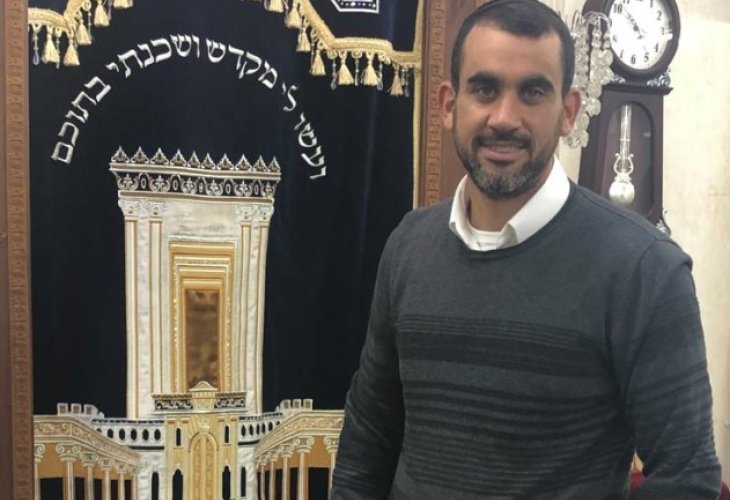 Eliezer Cohen
Eliezer CohenUntil a year and a half ago, Eliezer Cohen, then known as Nimrod Kozinyak, was helping thousands of Israelis celebrate at the Brazilian Carnival through the travel agency he started with his brother. He lived between Brazil and Israel for many years, taking care of all the travelers' needs—from hotels, to activities, to personal assistance for those in trouble.
On one of his trips to Brazil, Eliezer went to the embassy to renew his visa, where he met the Chabad rabbi of Rio de Janeiro. "I told him about our business," Eliezer recounts. "I said we had opened an Israeli agency in a new location in Brazil, where no one else was working with Israelis, and that destination had become very popular. Every year, 3,000 Israelis participate in the Carnival, and since we were the only organization helping them, many young people came to us asking where they could find a Chabad house, kosher food, and Shabbat dinners. I explained to the rabbi that there was nothing representing Judaism there, that the demand was there but not the supply, and I suggested that next year I'd rent a hall where they could hold Shabbat meals, Torah classes, put on tefillin, etc. The idea appealed to him."
Where did the idea come from? At the time, you were far from Judaism.
"I knew I was on a mission with the Israelis, and beyond providing service, we were a listening ear for them. If someone didn't feel well, lost something, or needed help, they came to us. I felt really responsible for them, beyond the business care we provided. I knew Israelis love to be together on Friday nights, and when I saw the rabbi, I thought this connection between Judaism and the feeling of 'togetherness' could work. Today I realize how opposite what travelers do there is to what the Torah says, but I knew it could work because on one hand, these were post-army young people wanting to let loose, travel, and enjoy life, but on the other, I felt they were open to listening as long as it was done pleasantly and gently, showing them the beauty of Judaism."
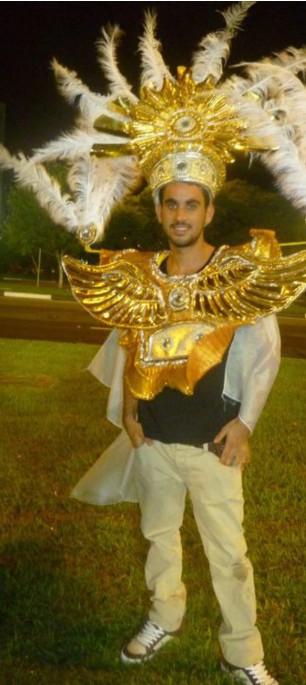
"I Began to Feel Emptiness"
That rabbi Eliezer met called the Hidabrut Counseling and Guidance Department and told Yaron Itzikov, one of the department's counselors, that there was a guy in Israel now that he should talk to because he was open and receptive. Yaron called Eliezer, and although the conversation was pleasant, Eliezer hesitated a bit. "I got back to Israel and they called me from 'Hidabrut'. They said they heard about me from the rabbi of Rio de Janeiro and suggested I visit their studios in Petah Tikva to meet Rabbi Zamir Cohen. They said they heard I was starting to strengthen my faith and wanted to have a short introductory chat with me."
How did you feel when they approached you?
"At first, I was resistant. I thought to myself, 'What do I have to talk to rabbis about? They'll probably tell me things I don't want to hear,' so I gently refused and said we'd stay in touch. At that time, I was living in Tel Aviv. It was the beginning of the summer and I rented an apartment by the sea. After a few months, nothing excited me anymore. I began to feel an inner emptiness. I realized there must be a purpose, that I hadn't come into the world just to pass the time, travel, and seek pleasure. There had to be something else. I always knew there was a Creator, but I couldn't understand the connection between me and a life of Torah and mitzvot. I was raised in a certain way—being a good person and doing good deeds were the main things, but we weren't religious."
Back then still called Nimrod, Eliezer decided to resume putting on tefillin but couldn't find his set. He gave up and abandoned the idea. "One day, my mom called and told me she found Grandpa Eliezer's tefillin," he recalls. "So I started putting on tefillin again and felt a need to talk again with the rabbi from Hidabrut."
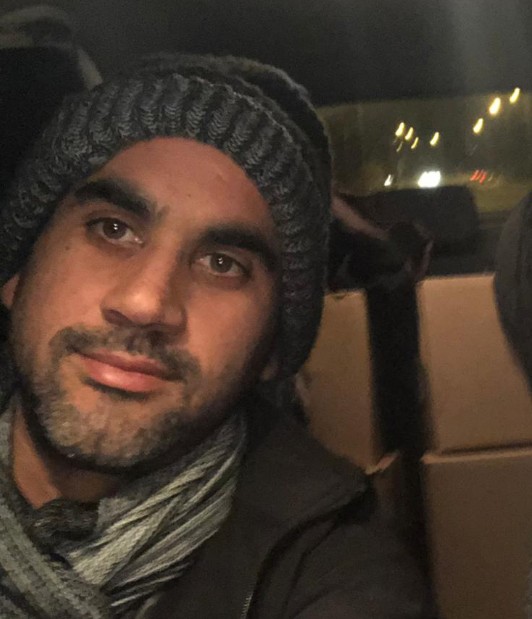
What did you tell him?
"I sent him a message that I had started putting on tefillin again and asked him to call me. He said he was glad to hear and invited me to a weekend retreat in the Kinneret with Rabbi Zamir Cohen and other prominent rabbis. I started to hesitate because I planned to come for a cup of coffee in Petah Tikva, not a weekend in the north, but he told me it would be very interesting and that I'd really understand what Judaism is about in a pleasant atmosphere. I told a friend of mine about the retreat, and we decided to go together. From the moment I heard the lectures and talked to the rabbis that weekend, things clicked for me, and I understood that the Torah was the truth. I felt like my whole life had taken a new turn."
It seems like your path to return was quite short.
"My story is atypical, it happened quite fast. Before the seminar, I had listened to Rabbi Yigal Cohen's lectures on Facebook. Slowly but surely, I began to realize there was a Creator. The rabbi said in one of his lectures that he asks everyone listening, in Israel or abroad, to take on one mitzvah for the upcoming Shabbat to bring joy to the Creator. At that moment, I decided that this Shabbat, I wouldn't smoke a cigarette, and that's what happened. I didn't keep Shabbat, I did everything as usual, but I didn't smoke. When Shabbat ended, I lit a cigarette and suddenly didn't understand why I had waited for this disgusting thing all Shabbat. From that moment, I quit smoking after 12 years."
What happened when you started the process?
"I began to realize that my lifestyle, without complete faith and without the Creator in the picture, was no longer enough. I understood I was missing something in my life's purpose, in who I was, that there was no point in the things I was doing if I was doing them just for myself. At that time, I still didn't understand that the mitzvot connect you to the Creator and fill your spiritual world, I just became a more peaceful, caring person."
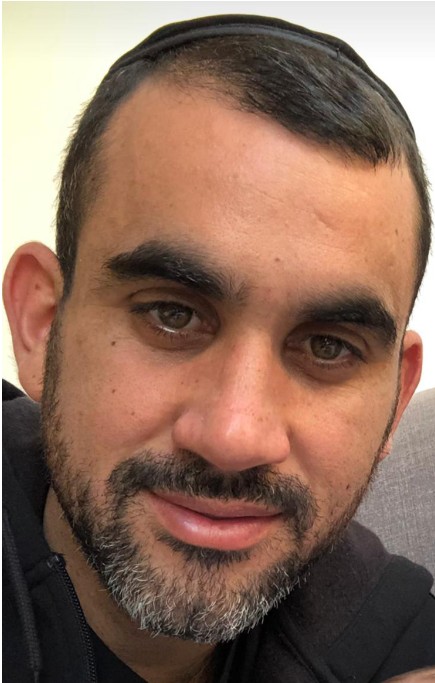
"The Soul Doesn't Need Trips and Parties"
Eliezer's journey to returning was quite swift. A few days after the seminar, he was already entering Rabbi Zamir Cohen's yeshiva. "My transition was sharp. I entered the yeshiva just to see what the world of Torah study was all about. I intended to stay in Israel for two weeks and then return to Brazil, but I then realized that if I wanted to complete the process, I had to study Torah with others who were going through this journey with me."
And how did you feel about this not-so-simple transition?
"I didn't even know what prayers were. For three months, I learned only about tefillin, Birkat HaMazon, and prayers. The most basic things. Only afterward did I start learning halachot and Gemara."
How did your family react to the change?
"At first, they didn't understand why I was taking it to such an extreme. I explained to them that I entered the yeshiva because I wanted to see what it's like to live as someone who observes Torah and mitzvot. I knew it was a good place for me because there were others there experiencing the same process as me. After two months, my family noticed the change in me because when you start applying the Torah, your approach to life becomes more optimistic. I began to understand what honoring parents is, what Shabbat is, how enjoyable it is to give thanks for everything. People search for spirituality in all kinds of external things like yoga, coaching, pills, but they don't understand that true tranquility comes through prayer. My parents saw the positive process I was going through and even started strengthening themselves. Overall, I have a very supportive family and not one that raises an eyebrow."
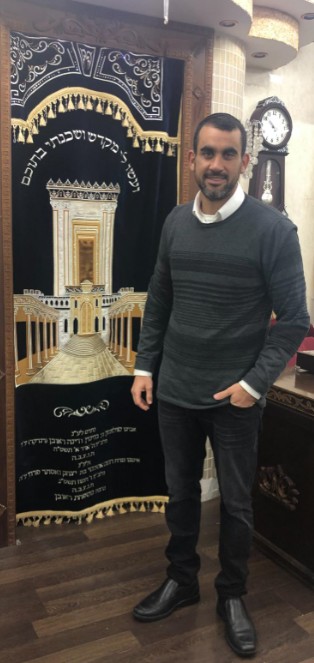
He decided to change his name in consultation with Rabbi Zamir. Since his grandfather's name was Eliezer and his last name is Cohen, he transformed from Nimrod Kozinyak to Eliezer Cohen and continued his spiritual building. He didn’t participate in last year's festival. "I knew that if I went, it would affect the process I was going through. I wanted to get married, build a home, and I realized it wouldn't bring me closer to that, so I decided to stay here, in yeshiva."
And what's the plan for the future?
"Only Hashem knows what will be, but I believe my story can strengthen many people. I've come from a very distant place to a very close one, and that can influence so many people. Young people these days are very confused. I recognize their mindset because I was there, I know what they're going through. When you are discharged from the army and suddenly you're free to do what you want, travel the world, without parents or commanders over you, you just want to enjoy. Sometimes you come back to Israel and can't cope with the new reality, so you decide to travel again, do whatever you want once more. Today, I understand my lifestyle was very indulgent, as I organized trips around pleasures, sights, and parties, but that's not what our soul wants. It's not the purpose. I know this lifestyle, and now I know there's something deeper, a more internal essence. People don't know what Judaism is anymore, and I can explain to them because I was there, I felt what they felt. The fact that I was privileged to come closer is a gift from Heaven, but it's not enough; I have a mission to fulfill."

